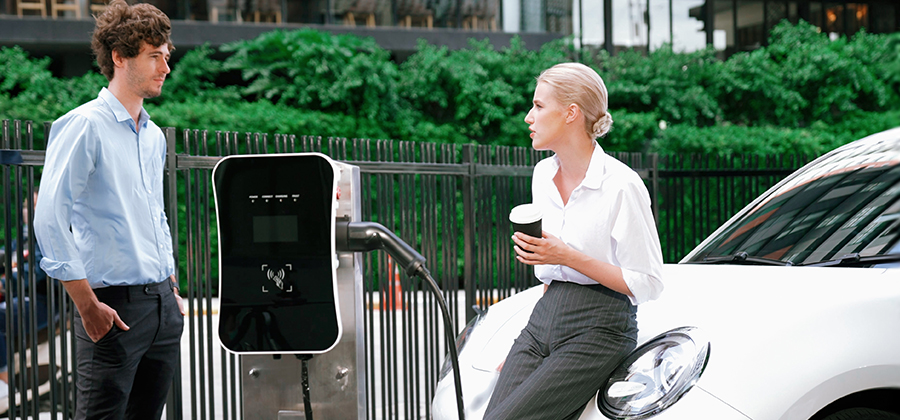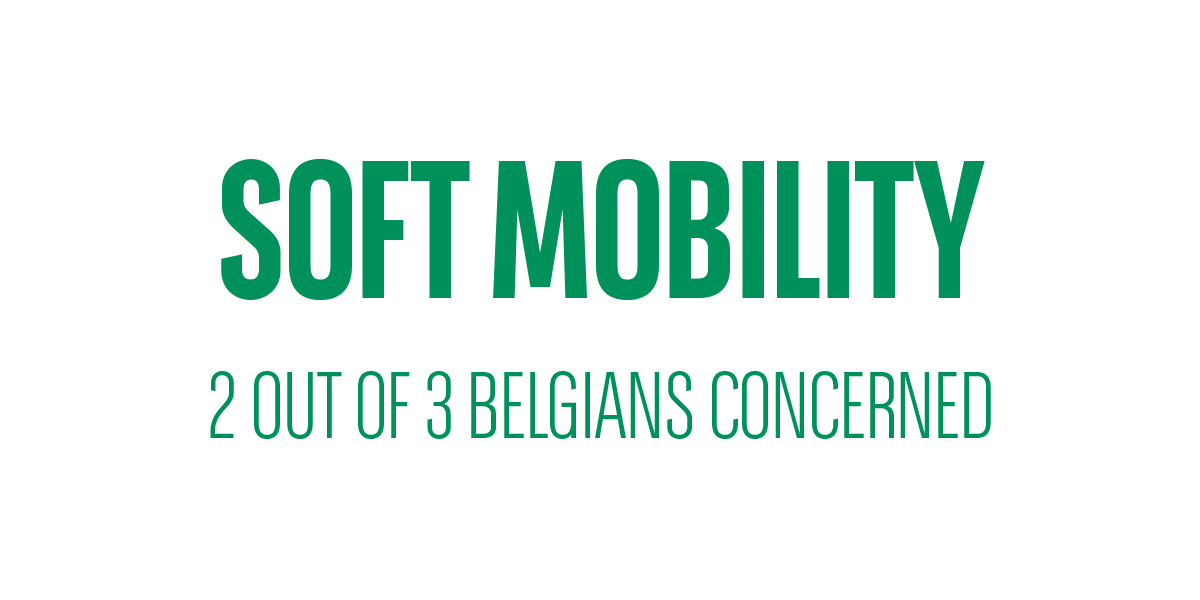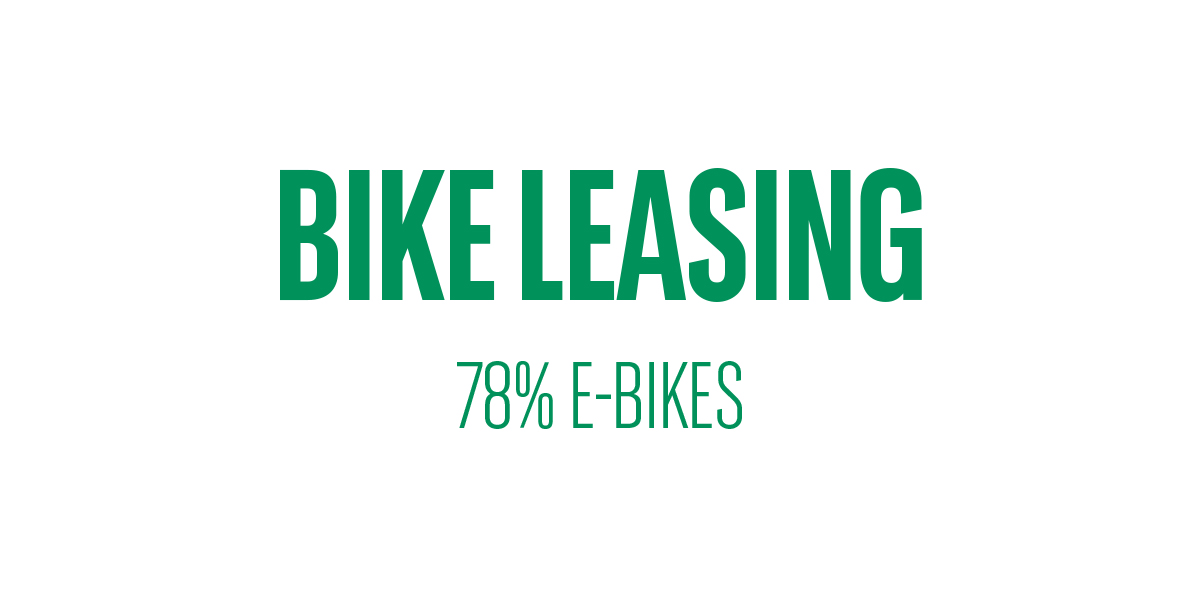Today, even the Belgian State encourages civil servants to work partly from home. Here are the secrets of successfully implementing a teleworking programme in your business.

18,000 civil servants chose teleworking for up to three days per week last year. That's nine times more than in 2011! In the private sector too, teleworking is supported more and more. To combat stress, but also due to mobility.
SDWorx has just published a roadmap to assist with the introduction of teleworking in businesses.
- Identify the roles eligible for teleworking (and their frequency)
Avoid allowing it where controlling tasks or consultation is essential. Teleworking can still turn out to be successful where your employees need to concentrate on a file.
- Putting a policy in place
Even if the corporate culture is based on trust and autonomy, a written agreement is set. Think about having a teleworking agreement signed to be in good order from a legal standpoint, including practical details of the policy (arrangements, expectations, frequency, assessment, remuneration). You can provide compensation for setting up a home office. Be sure to also include a clause allowing remote working to be stopped in case of non-compliance with the agreements.
- Equipment and software programmes must be suitable
After detailing in writing the equipment provided - smartphone, computer and/or connectivity -, you should define the specialist software needed to make teleworking effective: internet/extranet access, VPN, collaboration, screen sharing, etc.
Is your company ready to take the leap?
08.03.2024
Businesses stand to benefit from switching to electric and multimodal mobility
BNP Paribas Fortis is ready for the mobility of tomorrow. And Laurent Loncke, General Manager Retail Banking and member of the bank’s management committee confirms this when he says “We do much more than lease electric vehicles”.
How can companies leverage mobility as part of their transition?
"If we look at vehicle usage alone, switching from fossil fuels to electric energy can reduce CO2 emissions by a factor of four. This transition is being encouraged in our country more than ever by tax incentives and tax breaks. From 2035, the European Union will also ban the sale of cars with combustion engines. Whether it’s for the company fleet or company cars for employees, electric driving is the way forward, alongside other forms of mobility."
Are all businesses aware of this?
"These days, two out of every three new vehicles are company cars. And 80% of those orders are electric vehicles, a trend that is also apparent at our partner Arval."
So companies are playing a pioneering role in this transition?
"Certainly. First and foremost because former company cars find their way to the second-hand market at some point, making electric driving more accessible for everyone. Secondly, by choosing an electric car, you can encourage your friends and family to follow your example. Our recent Profacts survey (only in Dutch and French) showed that 85% of electric vehicle owners are satisfied to very satisfied that they switched to an electric vehicle. However, 42% of Belgians are still reluctant. Half of them are worried their battery will run out before they can get to a charging point."
Is their fear justified?
"Not really. Most drivers only feel comfortable with a range of 500 kilometres, even if they only drive a few dozen kilometres a day. It’s true the charging network does need to be developed further. Many people, especially those living in cities, cannot install a charging point at home. BNP Paribas Fortis is contributing to the expansion of the charging network through its participation in Optimile. This Ghent scale-up offers software solutions for charging electric cars and is developing strategic partnerships for the installation and maintenance of charging points."
Can an electric car be part of each employee’s remuneration package?
"Today, there are already less expensive vehicles on the market, making electric driving an option for middle and lower-management. The Total Cost of Ownership of an electric car is the most important factor, however. And this is still much lower than that of a vehicle with a combustion engine. Leasing is often the best solution. We have a comprehensive, tailor-made offering for all companies, regardless of their size and needs."
What exactly do you mean by a 'comprehensive offering'?
“In addition to leasing, we are able to offer charging solutions at home or at work, a charging card for public networks, the automatic reimbursement of electricity consumption at home, an app to find charging stations, and electric driving training through our many partners.”
So a complete ecosystem?
"We want to contribute to the mobility of tomorrow. By financing it, through credits or leasing, and with insurance, but also by working with partners outside our traditional activities. Like Optimile, and Touring, an organisation that is synonymous with reliability."
But mobility isn't just about cars, is it?
"We believe we need to rethink our relationship with the car. Given the climate targets and the increasing scarcity of resources, it is simply not possible to replace every internal combustion engine with an electric car at the moment. Arval offers its extensive expertise to companies considering a different approach to mobility. We help them analyse their needs, propose alternatives to the car, establish a mobility budget or draw up a mobility policy. We offer bicycle leasing, sometimes in combination with car leasing. We strongly believe in multimodality and mobility-as-a-service solutions: the option to combine different transport modes and pay for them without too much hassle. This is also one of the specialities of our partner Optimile."
Are companies and their employees open to this idea?
"The idea of employees no longer saying 'I have this amount for my car in my salary package', but rather 'I have this amount for my mobility' is gaining traction. People are already paying for use rather than ownership in gyms or for streaming services. Mobility is going down the same route, with car-sharing and flat-rate subscriptions, making costs more predictable for businesses and private individuals. But the pace of change will also depend on the success of the federal mobility budget. For now, uptake is slow."
BNP Paribas Fortis SA/NV – Montagne du Parc/Warandeberg 3 – 1000 Brussels – VAT BE 0403.199.702 – RPM/RPR Brussels
Optimile SA/NV – Sassevaartstraat 46 bus 204, 9000 Ghent – RPM/RPR Ghent – VAT BE 0648.837.849 – www.optimile.eu – BNP Paribas Fortis SA/NV holds a greater than 10% stake in Optimile SA/NV.
Arval Belgium NV, Ikaroslaan 99, 1930 Zaventem – Brussels Register of Companies – VAT BE 0436.781.102.
Touring SA/NV, Koning Albert II-laan/Avenue Roi Albert II 4 B12, 1000 Brussels – Brussels Register of Companies – VAT BE 0403.471.401, is registered under this number with the FSMA, Rue du Congrès/Congresstraat 12-14, B-1000 Brussels, and acts as an associated agent on commission for AG Insurance SA/NV. AG Insurance SA/NV owns a greater than 10% stake in Touring SA/NV.
06.09.2023
New mobility: driven by technology
Can technology drive the transition towards more sustainable mobility for businesses? See what Philippe Kahn, Mobility Solutions Expert, has to say on the matter.

Now more than ever, businesses need to rethink mobility so that it forms part of the sustainable transition that needs to take place in our societies. Since 1 July 2023, the regulation meaning that company vehicles with combustion engines will no longer be longer tax-deductible by 2026 has started to have an impact. At the same time, Belgium’s Federal Mobility Budget and its recent developments are making this (r)evolution much more concrete and practical. And one thing is for sure: technology – and especially apps – have a key role to play. Philippe Kahn, Mobility Solutions Expert at Arval BNP Paribas Group, explains why.
1 July 2023: a key date
“In the few weeks that have passed since the pivotal date of 1 July 2023, we have already seen a change in the needs expressed by our corporate customers,” says Kahn. "Some of them had already taken practical steps towards sustainable transition. But nowadays, more and more of them also have to address the specific questions and concerns of their employees. How will I be able to use an electric car when I live in a city and have no charging stations available? Do I want to search for a reliable place to charge every day? And am I ready to fundamentally rethink how I get around? Providing a satisfactory answer to these questions is inevitably a priority for employers. As well as the end-to-end management of company electric vehicles – including the question of charging them – more and more companies are starting to rethink their overall mobility policy, analysing all existing alternatives, particularly multimodal solutions. And that’s great news, because it’s essential for their future. So I think the demand for such solutions is only going to grow. Technology, and apps in particular, are key tools for a smooth transition".
Anticipating change to serve companies better
Whereas this issue is only just emerging for many companies, it has been a priority for Arval BNP Paribas Fortis and Philippe Kahn for years. "For more than five years now, we have been anticipating the changes that are now taking place, ensuring that our vision of mobility and expertise go far beyond leasing. We now have an entire department that deals with these matters exclusively. This enables us to meet and even anticipate the needs of companies that have no experience of these issues, and who sometimes feel a little lost when it comes to this revolution in travel.”
A simpler, smoother experience thanks to technology
But why and how is technology playing an important role in this transition to more sustainable business travel? "It’s making the experience of new mobility easier and smoother for its users. And that's where the latest developments in the market are heading," says Kahn. "In fact, that's also what our new Mobility Arval App now offers our corporate customers. It makes it easier for employers to manage the mobility budget established by the federal authorities. This budget, its three pillars and recent developments are crucial factors when a company is rethinking its mobility. But at the same time, it involves some regulatory complexity. That’s why, five years ago, we started developing a whole range of technological tools to help companies deal with these matters. For example, we make it simple for our customers to manage the combination of an electric car and bicycle within this mobility budget. In this spirit of innovation, and aiming to improve the user experience, our app integrates all facets of new business mobility, which are all accessible from a smartphone. Use of public transport, shared mobility, taxis, and even parking – even though this is not one of the pillars of the mobility budget – everything is in one place. The app also makes it easier to manage transactions: low-value mobility transactions, such as buying a bus ticket, are automatically captured and validated, so manual checks are no longer needed. Similarly, there is no longer any need to advance money to employees or reimburse them for anything, and no need for them to keep and present tickets or any other proof of purchase. In short, our app translates the entire mobility budget, which can be pretty complex, into a user-friendly tool where all the important components are taken into account: car, bicycle, scooter, multimodal solutions, public transport, shared mobility, etc."
Technology as a strategy accelerator
Arval Belgium’s innovations perfectly illustrate why technology is an important accelerator when implementing new mobility strategies. And it goes without saying that what exists today will evolve very quickly, leading to an ever-richer user experience. As Philippe Kahn says, "there are a lot of innovative tools out there already. But one of the challenges, linked to the complexity of the situation in Belgium, is to bring together all the players involved under the same umbrella, so that the result of this collaborative work can be found in a single 'magic' app. The solutions that exist today in Belgium are often local in scope. This is a limitation that doesn’t exist in the Netherlands, for example, thanks to their OV card. Belgium’s urban planning realities are also a challenge: outside the major urban centres, it’s less easy to set up mobility hubs in which all modes of travel are accessible."
One thing is certain: for companies, the transition to new forms of mobility is well underway. And the new Arval Belgium app is a valuable tool for those companies. “This technological innovation now makes it possible to mitigate the regulatory complexity for employers, and to make multimodal transport a very fluid experience for employees,” concludes Kahn.
Arval Belgium SA, Ikaroslaan 99, 1930 Zaventem – Registered with the Brussels trade register – Belgian VAT number 0436.781.102. Company with an ancillary insurance brokage business, registered with the Belgian Financial Services and Markets Authority (FSMA) under number 047238 A. Subject to acceptance of your request.
Arval Belgium SA is a subsidiary of BNP Paribas Fortis S.A.
02.05.2023
Where are we on the road to new mobility?
A mobility survey carried out on behalf of BNP Paribas Fortis shows that this issue will remain a major challenge for the years to come. The bank is firmly determined to play its part.
A survey among 2,000 people, and representative of the Belgian population, on mobility shows that the switch to electric driving is slowing. Almost 80% of those surveyed still drive a diesel or petrol vehicle, and more than a third of them have no intention of trading in their cars for a more environmentally friendly model any time soon. And yet almost 50% want to be driving electric by 2029. But before that switch, some hurdles first need to be cleared. According to two-thirds of respondents, the bank needs to take a proactive role in the transition to sustainable mobility.
- Only 10% of cars on the streets today are electric, hybrid or run on hydrogen. Users of these vehicles confirm they are very satisfied. Though most have their own charging station, public charging stations are a bottleneck.
- While fighting climate change remains the main argument for switching, changing mobility habits isn’t so easy. The switch to electric is slow, and more incentives are needed, such as new tax measures, and above all, a commitment from the government. Prices also need to come down. It is clear that the practical issues of driving and charging times mean people hesitate to make the switch.
- As a result, enthusiasm about new mobility initiatives is rather muted. Although, especially in big cities, an app that combines mobility options has good chances of success.
- Mobility and work are strongly linked. One in three people spend at least an hour a day travelling to/from work. It turns out that teleworking is a solution for only 50% of the people, and that the other half of the population don’t have the opportunity to work from home.
- More awareness needs to be created around new mobility. Not everyone is familiar with shared cars, bikes and charging stations yet.
Mobility partner
BNP Paribas Fortis is determined to contribute to more sustainable mobility and be a mobility partner for both professional and private customers. We are doing this by informing audiences of all the advantages of an environmentally friendly switch. And also by offering support through financing, insurance and leasing. Our goal is to provide a global response to tomorrow's mobility needs through innovative services.
02.05.2023
Travelling to work: the rise of cycling!
More and more people are cycling to work. Mobility solutions expert Philippe Kahn explains how and why.

People are changing the way they travel to limit their environmental impact: behaviours are starting to shift, and the use of bicycles is rising, including and especially for travelling to and from work. We spoke to Philippe Kahn, Mobility Solutions Expert at Arval BNP Paribas Group, about these developments.
Two out of three Belgians use soft mobility, mainly bicycles

According to Profacts’ “Mobility Tomorrow & Beyond” survey, two out of three Belgians have adopted soft mobility. "But the biggest change is the increasing use of bicycles for business travel and commuting. People are also using bicycles more on the school or nursery run, facilitated by the arrival of electric cargo bikes on the market," says Kahn.
A favourable regulatory framework
But what are the reasons for the increased use of bicycles for business travel? “Let’s first take a look at how the regulatory framework has changed," says Kahn. "In Belgium, the creation of the federal mobility budget has made alternative ways of travelling attractive for all employees. The budget makes it possible to choose a comfortable company bicycle as part of a tax-friendly salary package. Moreover, this mobility budget can even be used to cover housing costs if you work from home more than half the time or if you live within 10 km of your place of work. So instead of having a company car, people can choose to have a combination of an electric bicycle and a contribution to their housing costs. Furthermore, two measures effective from 1 May 2023 should reinforce this trend: the bicycle allowance for commuting is increasing to €0.27 net per km travelled, and all Belgian employees will be entitled to this allowance. In practical terms, this means that those who choose to cycle for these journeys will be substantially rewarded.”
Investment in public infrastructure is paying off
Another important factor in the increased use of bicycles is the development of road infrastructure.
Philippe Kahn: "One factor that can convince people to cycle to work is the certainty of a safe journey. A few years ago, cycling to work in Brussels, for example, could be dangerous. But today, cycling infrastructure is making these journeys increasingly safe, in particular thanks to the cycle motorways on which only bicycles can travel. Infrastructure investments are now also happening in the rest of Belgium, not just Flanders and its major cities. In recent years, Brussels has undergone significant changes, and things are also starting to move in Wallonia.”
Half of all Belgians live within 15 km of their place of work
Distance from the workplace is also crucial in determining how attractive cycling is. "One in two Belgians lives within 15 km of their workplace, a distance that you can easily cycle," adds Kahn. "Along with the Improved infrastructure, this means that cycling to work is a realistic option for many Belgians. And the €0.27 per kilometre allowance will be an added incentive for them to make the change.”
What is the federal mobility budget?
This scheme allows the budget initially allocated to an employee’s company car to be divided into three pillars within a salary package. These three pillars are:
- a car with no or low CO2 emissions (less than 95 g/km), such as an electric vehicle;
- sustainable means of transport, including cycling, but also in some cases this pillar can also cover housing costs, such as rent or mortgage repayments;
- the balance of the mobility budget, which is paid in cash.
The mobility budget makes it possible, for example, to replace a combustion-powered company car with an electric car and a bicycle, with the same tax-friendly terms for both the employer and the employee.
78% of leased company bicycles are electric
To meet the needs of companies and their staff, Arval is now offering bicycle leasing. This full-service lease covers maintenance, breakdown assistance, insurance and repairs, as is traditionally the case for a car. Philippe Kahn points out some very significant trends in this area: "60% e-bikes and 18% speed pedelecs: in total, 78% of our leased company bikes are electric.
 High-end bicycles costing several thousand euros, such as electric cargo bikes, are also highly successful, which is probably due to opportunity: the mobility budget or employer “cafeteria plan” benefits packages are making it possible for people to acquire these bikes. But it may also be a consequence of Belgium’s specific tax regulations: the more expensive the bicycle, the more significant the tax incentive. Another interesting observation is that when a bicycle replaces a car, it’s usually the family’s second car. So we’re not yet seeing any radical replacement of cars by bicycles, but the emergence of the company bicycle is definitely reducing the total number of kilometres travelled by car.”
High-end bicycles costing several thousand euros, such as electric cargo bikes, are also highly successful, which is probably due to opportunity: the mobility budget or employer “cafeteria plan” benefits packages are making it possible for people to acquire these bikes. But it may also be a consequence of Belgium’s specific tax regulations: the more expensive the bicycle, the more significant the tax incentive. Another interesting observation is that when a bicycle replaces a car, it’s usually the family’s second car. So we’re not yet seeing any radical replacement of cars by bicycles, but the emergence of the company bicycle is definitely reducing the total number of kilometres travelled by car.”
Digital applications: shifting up a gear
Lastly, Kahn points to another factor that could encourage more people to take up cycling to work. "I think that technology, and in particular digital applications, can make a big difference. We can expect strong growth in the market for apps dedicated to commuting by bike. The business model for on-the-go electric bike rental is already based on a smartphone app. So imagine the success of an application that gives you a safe and bicycle-friendly route for travelling to and from work, and the boost that this could give to this type of travel," concludes Kahn.
